Beijing Internet Court releases details of false advertising campaign
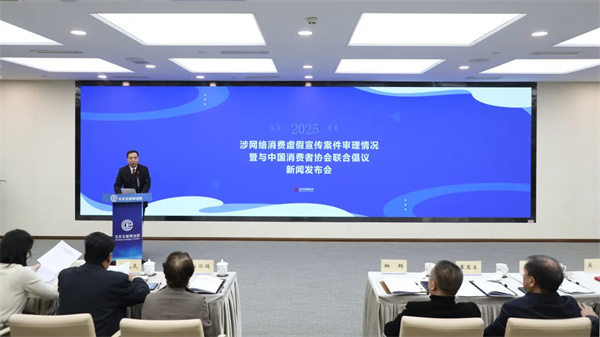
The Beijing Internet Court (BIC) outlined its handling of online consumption cases concerning false advertising at a press conference on March 13. A joint initiative with the China Consumers Association (CCA) to promote honest business operations and eliminate false advertising was unveiled at the event.
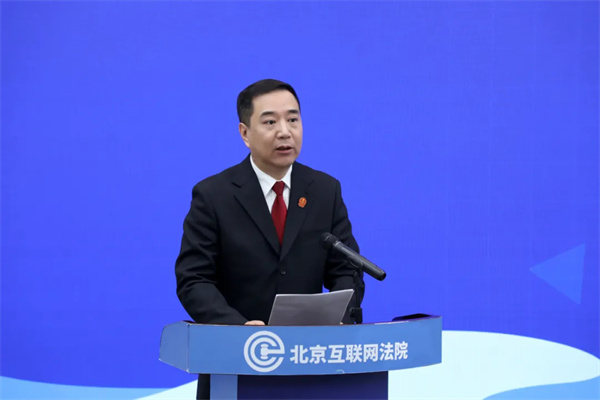
Luan Miaomiao, head of the BIC's Political Department, presides over the press conference. [Photo/Beijing Internet Court]
From the court's establishment in September 2018 to February 2025, the BIC has accepted a total of 6,734 cases involving false advertising in online consumption, with the number of cases increasing year by year.
The subjects involved in litigation range from traditional business entities to new business practitioners such as livestreaming anchors and multi-channel networking (MCN) companies. The types of cases vary, with 80 percent involving disputes over information network sales contracts. Means of false advertising are diverse. In addition to fabricating and concealing product information, some case involve inducing consumers through "favorable review cash rebate" and creating fake personas. The subject matter spans a wide range, including food, daily necessities and luxury goods. In addition to traditional e-commerce, live stream selling and second-hand trading are all employed as tactics.
Common challenges identified in these cases include unclear advertising content, insufficient performance of online platform responsibility, consumers' lack of rational consumption and awareness of rights protection, as well as the evolving nature of false advertising enabled by new technologies.
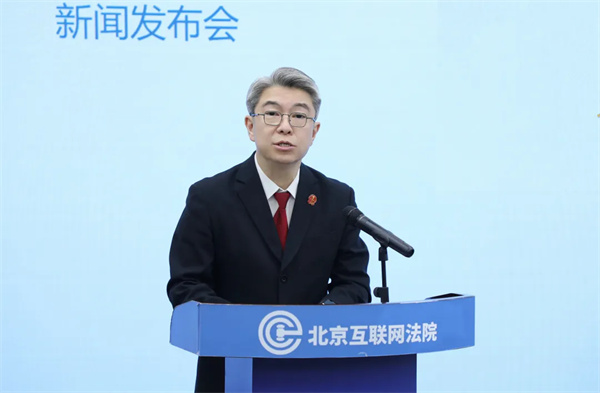
Yi Jun, vice-president of the BIC, gives a briefing on BIC's handling of online-related consumption cases concerning false advertising. [Photo/Beijing Internet Court]
As pointed out by Yi Jun, vice-president of the BIC, some business operators fabricate commodity information, set vague trading rules, and conduct false advertising through new technologies such as artificial intelligence (AI) and algorithms. Meanwhile, some platforms lack effective managements, sufficient testing services and adequate after-sales services.
In response to those challenges, the BIC made accurate determinations on the subjects of online transaction disputes in the trial practice, applied punitive compensation regulations in accordance with the law, accurately identified false advertising of food and drugs, examined the operators' commitment to high compensation, determined the liabilities of online platforms according to the law, reinforced the application of small amount procedures, and effectively safeguard the order of the online consumption market.
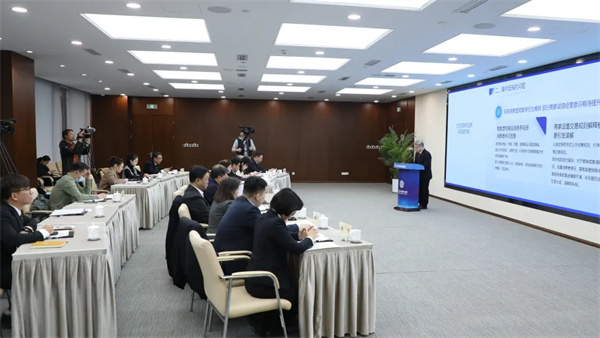
Based on the common issues and governance experience in judicial practice, the BIC suggested that business operators should conduct law-based operate in good faith, maintain strict quality control and truthful advertising, and improve after-sales service. Online platforms should fulfill their primary responsibilities, optimize platform management systems, improve credit incentive mechanisms, as well as dispute resolution mechanisms. Consumers are encourage to enhance their legal awareness, make rational purchasing decisions, retain evidence, use dispute resolution channels in accordance with the law, and safeguard their rights.
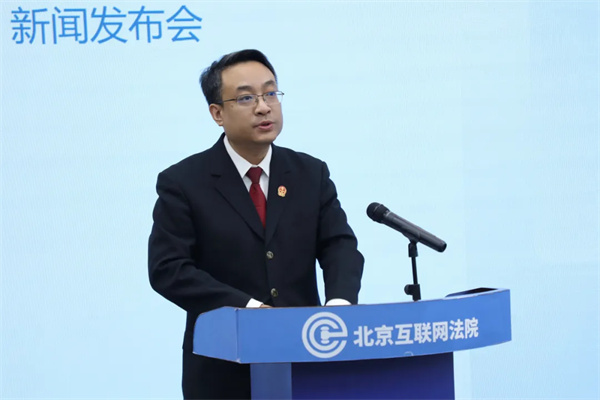
Zhang Lianyong, presiding judge of the BIC's Second Comprehensive Division, releases typical cases on false advertising of online consumption. [Photo/Beijing Internet Court]
Eleven typical cases were released at the press conference, which clarified that business practices such as intentionally concealing key product information, fabricating food with disease treatment efficacy, and intentionally confusing clothing materials constitute fraud. Some cases determined that the e-commerce platforms' punishment of merchants for false advertising based on platform rules does not constitute a breach of contract, and the operators should fulfill the promise of high compensation if they sell fake goods. The release of these cases aims to urge operators to truthfully describe the characteristics of goods and services to consumers, fulfill the commitments regarding counterfeit sales, and to urge the platforms to implement the agreement with regard to false advertising.
As part of their initiative, the BIC and the CCA called on all parties to strictly abide by laws and regulations, honor rules and commitments, strengthen self-discipline, standardize advertising practices, implement platforms’ accountability, and proactively cooperate with supervision departments, in a bid to contribute to the fostering of a fair and orderly online consumption environment, boosting consumer confidence, and creating a healthy digital business environment.

 Judicial White Paper
Judicial White Paper
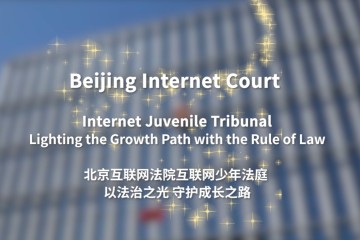 Play
Play Play
Play Online Lawsuit Guide
Online Lawsuit Guide Beijing Internet Court Lawsuit Service WeChat Account
Beijing Internet Court Lawsuit Service WeChat Account  Beijing Internet Court WeChat Account
Beijing Internet Court WeChat Account